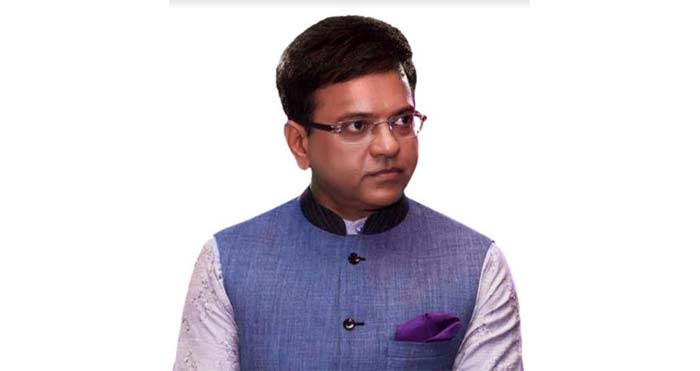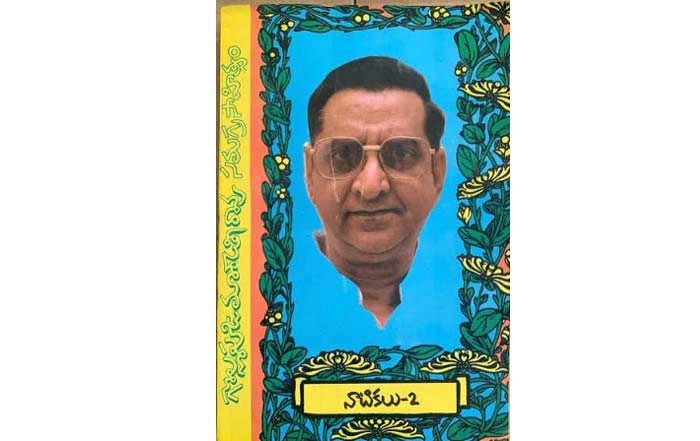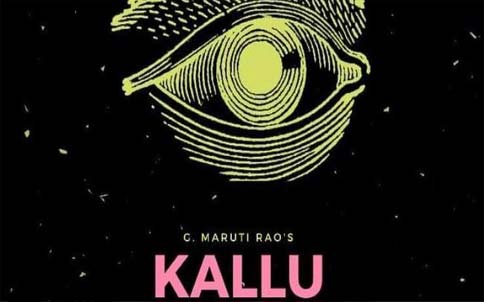A masterpiece by Gollapudi Maruthi Rao
Review : G. V. Subba Rao
My first memory of ‘Kallu’ is from 1969-70 as an 8-year-old. In those days, dad was employed in All India Radio, Vijayawada. We lived in a tiny two room shack with asbestos roof. The previous night, apparently, dad had bagged most of the awards in the competitive section of Theatre Arts Festival (Andhra Nataka Kala Parishad) Vijayawada. The next morning, Dad proudly showcased the glittering silverware to mom and rest of us. (I’m yet to see bigger and grander trophies than those on display that day!) ‘Best Play’, ‘Best Playlet,’ ‘Best Production,’‘ “Best Writer,’‘ “Best Actor’, etc. He held aloft newspapers with headlines screaming in bold letters, ‘Maruthi Rao’s ‘Kallu’& ‘Karuninchani Devatallu’ sweep the awards nite!’ Just beginning to identify alphabets as a young kid, I can still vividly recall those highlighted captions, five decades later! For me, my father seemed the greatest ‘Super Star’ on earth. Perceptions haven’t changed since. He still is… a ‘Super Star,’ if only bigger.

I recall picking up a copy of ‘Kallu,’ enthusiastically and wondering what’s the fuss all about. I couldn’t go beyond the first sentence in the foreword, ‘In this playlet, ‘Eyes’ is a mere symbol…’I hurriedly abandoned the idea of reading further. It took 20 years or more to revisit, read, and try to comprehend the core message. Obviously, the daunting metaphor was too much for my head. As I go through it now, I’m astounded by the profundity of the premise packed into 26 pages of print! It could easily have been the prologue for an in-depth study of crimes and conscience. Maybe I’m blown away or being positively biased because it’s my dad’s work. The point I’m trying to drive home is that the playlet was, and is, way ahead of its time and finds relevance even in our contemporary society. I’m not surprised that it became a part of syllabus for post graduate Telugu Literature students in Andhra University.

The translation of ‘The Prologue’ by the playwright himself is reproduced below.
In this play ‘Kallu’ is only a symbol. One can be from the weaker section in a society. However, it can also be a ‘strength’ in the same environment. If one considers ‘Blindness’ to be a weakness then the five characters in this play symbolize the very same society that transforms the ‘weakness’ into ‘strength’ by manipulating human emotions. A group of blind individuals incapable of fending for themselves unite for an honest endeavor of merely safeguarding their interests through the protagonist ‘Ranga’. They invest their all and more importantly their indomitable faith in him. They make him their leader seeking redemption. Shall we term ‘Eyes’ as a metaphorical representation of their vote? Or will it suffice to say, their ‘trust’ in him. So then, what does the leader bestowed with the ‘sight,’ do? Alas, he chooses to exploit their weakness and turn it into an opportunity to loot the very same people who gave him the power! The self-respecting flock of deprived individuals seeking alms are coerced deeper into scarcity. In the end, the moral depravity of the protagonist is exposed when he seizes an opportunity todevour the fellow female companion. He becomes a testimony of an abysmal fall from grace. Perhaps, when things come to such a pass one forfeits the ethical right to rule over the underprivileged. One who fails to ‘see’ stark reality, doesn’t deserve to have ‘Eyes’! It is that symbol the play characterizes. My attempt is to give you a glimpse of this transparent truth – Gollapudi Maruthi Rao
To hell with modesty! ‘Kallu’ is a timeless masterpiece.
Courtsy: Nava Sahiti




